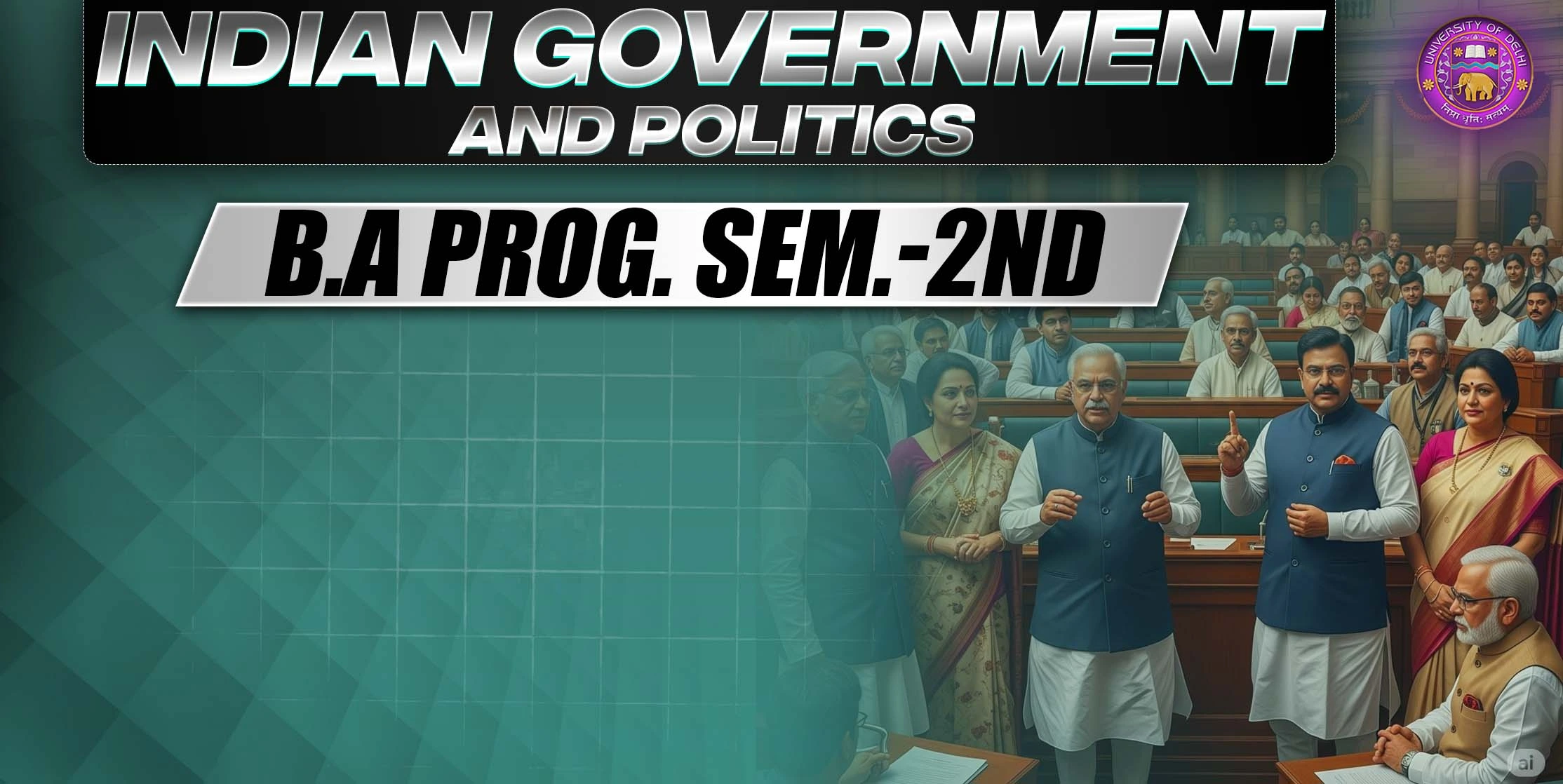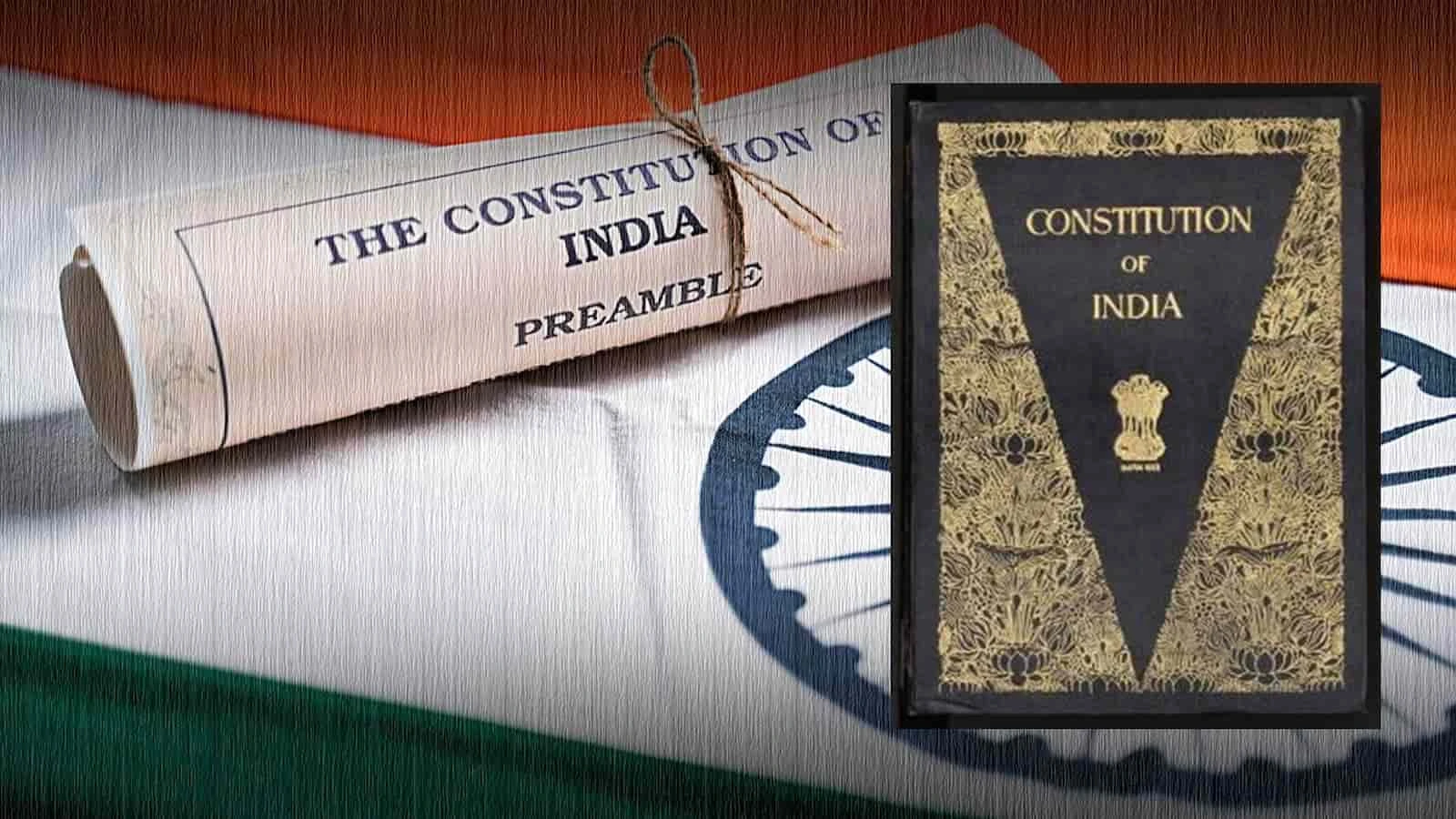
Get in Touch
We will get back to you within 24 hours.
Welcome to MVS Blog

Answer - INTRODUCTION
The Republic is governed in terms of the Constitution of India which was adopted by the Constituent Assembly on 26th November, 1949 and came into force on 26th January, 1950. The Constitution provides for a Parliamentary form of government which is federal in structure with certain unitary features.
Constitution: Constitution is such a written document of rules, bye-laws, according to which the government is operated. It sets the basic structure of the country's political system. The constitution establishes the legislature, executive and judiciary of the state, demarcates their powers and responsibilities and regulates the relations between the people and the state. Every constitution is a mirror of the ideals, objectives and values of that country.

FEATURES OF THE INDIAN CONSTITUTION:
1. Lengthy and Detailed:
The Indian Constitution is one of the lengthiest and most detailed constitutions in the world. It consists of a preamble and 448 articles, divided into 25 parts, along with 12 schedules.
2. Written Constitution:
The Indian Constitution is a written constitution, meaning it is codified and available in a single document. It draws inspiration from various sources, including the constitutions of other countries and legal principles.
3. Federal System with Unitary Features:
India follows a federal system of government, where power is divided between the central government and the states. However, the Constitution also includes unitary features that provide the central government with certain overriding powers during emergencies.
4. Parliamentary Democracy:
India is a parliamentary democratic republic, where the President is the head of state and the Prime Minister is the head of government. The Constitution establishes a bicameral Parliament consisting of the Rajya Sabha (Council of States) and the Lok Sabha (House of the People).
5. Fundamental Rights:
The Indian Constitution guarantees a set of fundamental rights to its citizens, which include the right to equality, freedom of speech and expression, right to life and personal liberty, and protection against discrimination. These rights are enforceable by the courts.
6. Directive Principles of State Policy:
The Constitution includes Directive Principles of State Policy, which are guidelines and principles for the government to follow in making laws and policies. They aim to promote social justice, economic welfare, and the overall well-being of the people.
7. Independent Judiciary:
The Indian Constitution establishes an independent judiciary as one of the basic features. The Supreme Court of India is the highest judicial authority in the country, with the power of judicial review to ensure the constitutionality of laws.
8. Secularism:
The Constitution declares India as a secular state, guaranteeing religious freedom and equal treatment of all religions. The state is neutral in matters of religion and does not promote or discriminate against any particular religion.
9. Universal Adult Suffrage:
The Constitution grants the right to vote to all adult citizens without any discrimination based on caste, religion, gender, or ethnicity. This principle ensures the democratic participation of all eligible citizens in the electoral process.
CONCLUSION
The Indian Constitution is a remarkable document that reflects the aspirations of a diverse and complex nation. It embodies the principles of justice, equality and liberty and provides a strong framework for governance and individual rights. Despite its length and complexity, the Constitution has stood the test of time and has adapted to the changing needs of the country while maintaining its core values.
0 Response